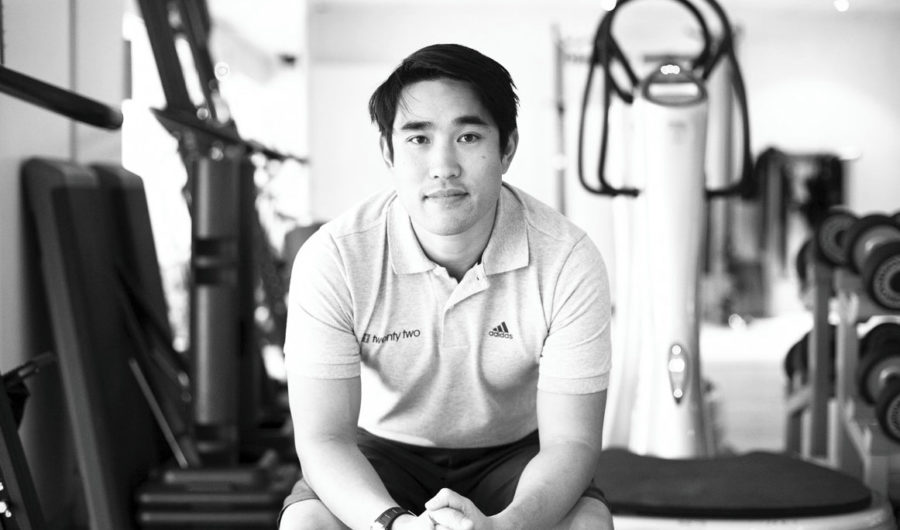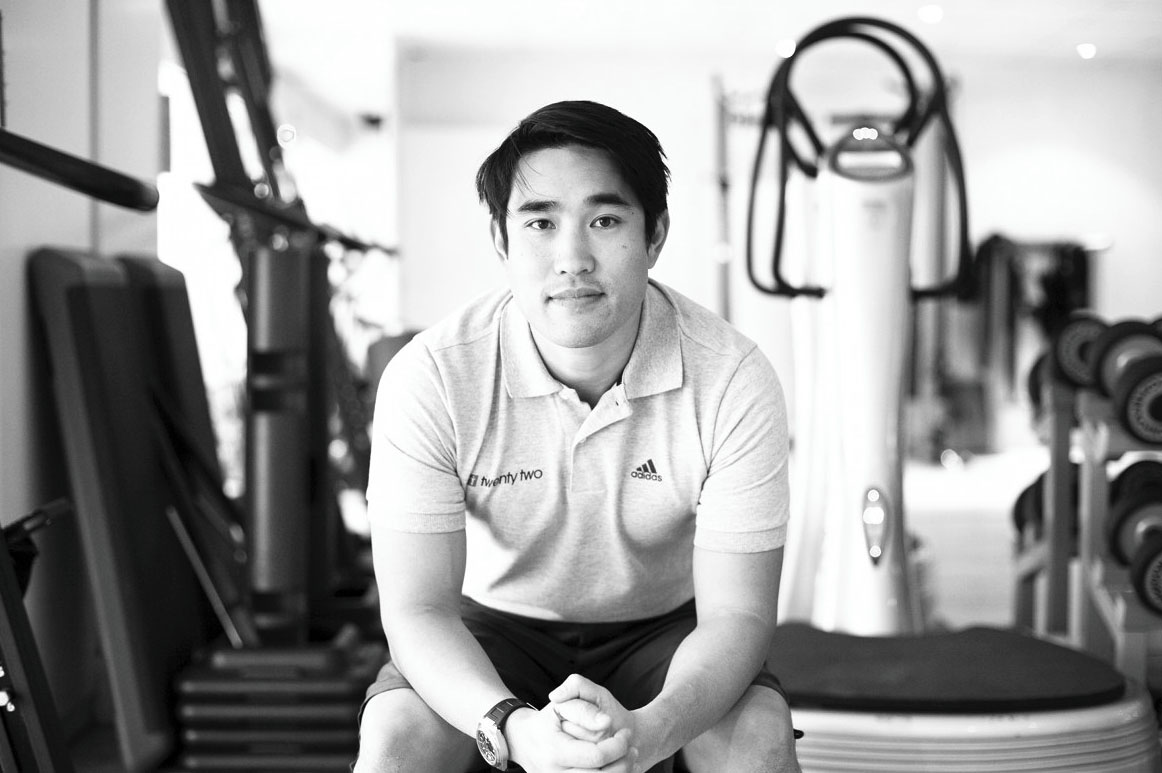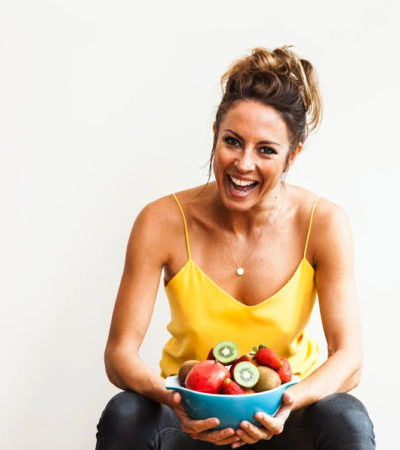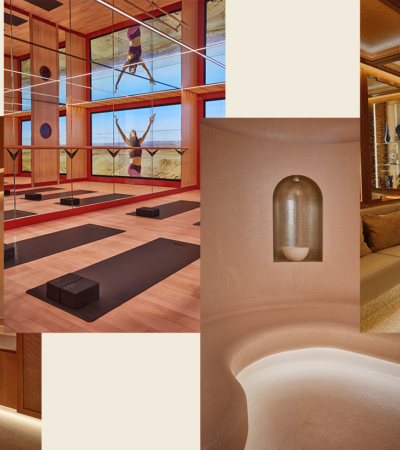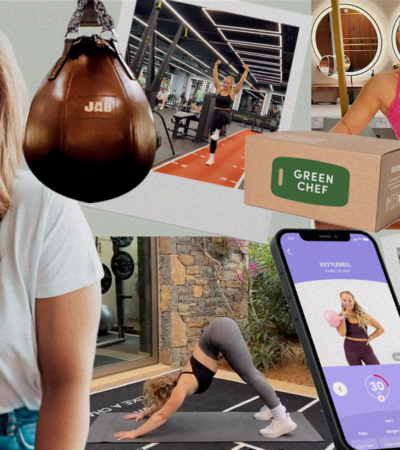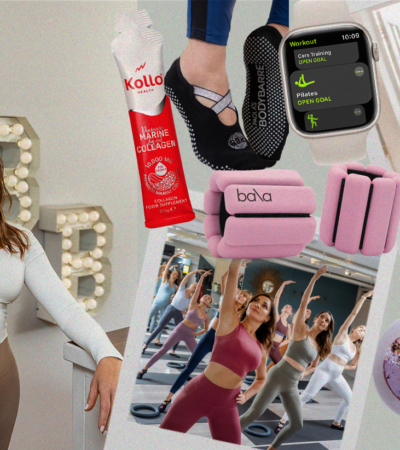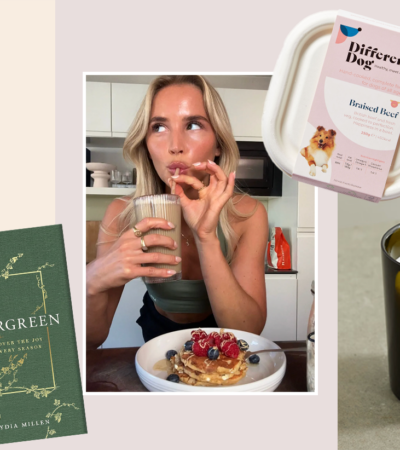Here at Hip & Healthy we’re big fans of Dalton Wong. Trainer, dad and PT to the stars, Dalton’s health and fitness philosophy is all about embracing balance, eating well and working out to feel your best. His new book The Feelgood Plan, written alongside health and lifestyle journalist Kate Faithfull-Williams is a chronicle of the steps it takes to find peace with your body, fit exercise into your week, enjoy the foods you love and relish a healthy and balanced life that makes you feel good, not just look good.
This week, we caught up with Dalton to chat about his own health and fitness philosophy, the issues with the faddy diets and over-the-top fitness plans we’re all too familiar with in this day and age, and how we too can change our mindset to one that seeks balance and happiness when it comes to our health. Over to Dalton…
There needs to be a change in the philosophy and mentality of health and fitness – it’s not a cookie cutter approach, we’re given the message “Do this diet or you’ll be screwed”, and that’s just not practical for 80% of the population. Find something for your own capabilities, lifestyle and time commitments and be empowered by your own decisions. Magazines and books constantly show us these 90 day transformations starring people with their tops off, transformation photos – but what happens after those 90 days? Do those people still look like that? Or is the plan too rigid to manage and maintain amongst their normal lives. When it comes to food – there are no foods that are bad for you, yes some may not give us as much energy, but who am I to say that if you like to have toast and coffee for breakfast then that’s going to make you feel bad – it may just be that it’s good for your soul.
Have you always lived a healthy lifestyle, or did your passion for health and fitness develop later in life?
I’ve been a trainer for around 20 years now. My father died of a heart attack when I was age 10, so from then on my family always made the effort to eat healthily. Sports were also a big part of life and this is what I believe moulded my career. Through my work, I wanted to make sure other fathers, mothers and carers could maintain their health to avoid what I went through with my father happening to other people. My goal is to preach health and wellness to people that comes from the heart.
What inspired you to write The Feelgood Plan?
My daughter is 10 years old, a girl at school called her fat, and I thought how am I going raise a strong, independent woman who enjoys life and is body positive and healthy but not have to worry about what other people think about her body? One of my main clients, Jennifer Lawrence is an amazing example – she eats what she likes, exercises and is incredibly successful. I hope The Feelgood Plan can be a blueprint for my daughter and all women of how to live a balanced life, with real practical advice.
As you know, at this time of year people can tend to be a little extreme with their health and fitness goals. We love the emphasis the Feelgood Plan places on embracing a more balanced lifestyle – what are your top tips for cultivating a more sustainable approach to health and fitness in 2016?
When thinking about lifestyle, it’s not a short-term thing. Many people start the New Year thinking I need to lose weight NOW – why now? Why not, I’ll work on my health and wellbeing so I feel good? That way I’ll feel healthy in the long run, not just for January, February and March. The problem with society nowadays is that we can get everything right now, but the truth is that health, fitness and lifestyle take time and good habits. Don’t think about it as being something to achieve in a short time. Make positive changes throughout your day that will be sustainable for long periods of time. Why would you go to the gym 5 days a week for the first month and then never go again? Enthusiasm has to last a year, or even forever. Try anything you’re passionate about – football, tennis – these things are sustainable for a long period of time, they’re not “exercise”, they have social aspects and are fun. Group dynamic also really helps, so if you find yourself struggling, try a class such as pilates, barre etc. This is a really balanced approach to take.
What does a typical day in the life of Dalton Wong look like?
On a work day, I’ll get up at 6.30am and have a green juice at home, get to work at around 7am and I love to have a coffee with organic cream. I’ll start work training clients from about 7am-12pm. At 12pm I have a little snack, normally another green drink as it’s fresh and quick to prepare. Then I go to my jujitsu class. Afterwards I head back to work and at around 3pm have lunch, this is often leftover dinner (e.g. stir fried veg with chicken). I’ll train a couple more clients from roughly 4-6pm. At around 6.30pm I sit down to do paperwork. I get home at 7pm and become a dad, a husband, and don’t have to worry about any extra work. I really try to make a split between work life and home life. At the weekends, we have breakfast as a family, I’ll take my son to football, we like to have the evening meal as a family together – and I won’t work at all.
Tell us about your weekly fitness schedule? How many times per week do you work out? What do your workouts consist of?
Jujitsu 3 times a week, resistance training 2 times a week and flexibility every day, just regular stretches – it helps me to relax, and its also important as you age and become less flexible. Don’t focus on just one form of exercise, take a proactive way of looking at health as different parts, not just high intensity, not just yoga, you need a little bit of everything for a strong body.
What is your top piece of advice for those of us hoping to improve our health and fitness this year?
Be passionate about what you’re doing – going to the gym should not be a chore. Find meals you like, look through books and experiment with recipes. Start eating healthy because you’re passionate about it. So many people spend their lives with a lack of passion, they hate their jobs, they hate this and that – so why should exercise be another thing you hate? Change your mindset.
What is your favourite way to de-stress after a busy day?
Go home, read my son a story before bed, sit with my daughter and talk about her day, just try and be a dad. Kids are very de-stressing, being with them really gets you out of your own head and opens yourself up to what others think. It brings you back to reality.
Is there anyone in particular that you really admire within the health/fitness world?
Everyone in the business is advocating a healthy lifestyle, but most diets only work for 30% of the population, so it doesn’t work to simply copy them, you need to create your own path. I’m just happy that people are trying to make the world a healthier place.
What is the best piece of health/fitness advice you have ever been given?
Develop a passion for something; whether it be healthy cooking or a form of exercise like jujitsu. I think that fashionable activewear can also be very empowering which is a great thing. Feeling confident in what you wear to workout can make you feel amazing about doing it and motivate you to go to the gym which is brilliant.
The Feelgood Plan (Ebury Press, £14.99), Photography by Philip North-Coombes is out now.
Interview by Zsa Zsa Vella
STAY TUNED FOR MORE FROM THE FEELGOOD PLAN COMING TO YOU ALL THIS WEEK!

